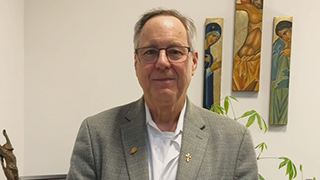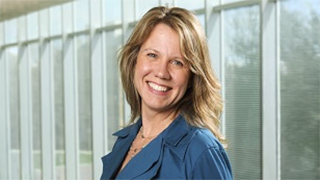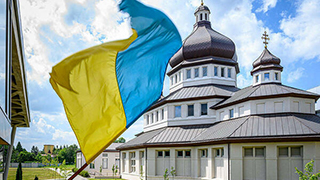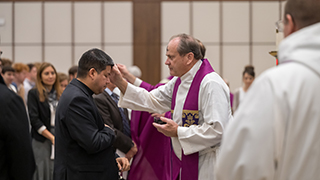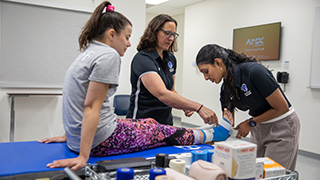Panel on Music and Spirituality Brings Together Scholars and Artists - Seton Hall University
Thursday, April 29, 2021
This spring, Seton Hall's Institute for Communication and Religion (ICR) and the Center for Catholic Studies co-hosted a two-hour roundtable discussion panel "Spiritual Dimensions of Music: Meaning, Interpretation, and Culture." During the live virtual event, scholars and artists came together for an open and insightful conversation about secular music, how organized religion has reacted to it, and the sometimes-overlooked spiritual aspects to secular music.
Deirdre Yates, M.F.A., founding dean of the College of Communication and the Arts, of which ICR is a part, spoke on the importance of this event. "Music is such a powerful medium of expression," she said. "The discussion of how our humanity is reflected by its many manifestations — plus how those manifestations are considered and handled by different religions — is a fascinating exploration which ultimately leads us to a better understanding of ourselves and others."
Jon Radwan, Ph.D., ICR director, served as moderator for the event. Founding Director Monsignor Dennis Mahon offered an opening blessing, and then Gregory Floyd, Ph.D., director of the Center for Catholic Studies kicked off the presentation series.
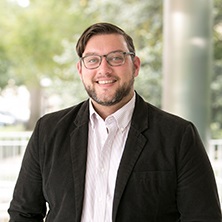
The second speaker was Ray Mancison, who is a professional musician, songwriter and former music executive. Currently, Mancison is completing graduate coursework in Systematic Theology at Immaculate Conception Seminary School of Theology.

Another musical guest and expert was Alan Paul, a musician and New York Times best-selling author. His first book, Big in China: My Unlikely Adventures Raising a Family, Playing the Blues and Becoming a Star in Beijing, is about his experiences raising a family in Beijing and forming a band with three Chinese musicians and touring China.
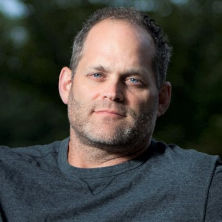
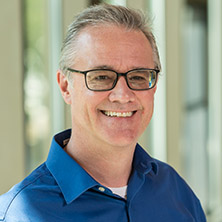
During his presentation, Radwan played examples of musical modes that could be construed as "bad" or "good", depending on the audience and their culture and historical era.. He gave as an example the tritone, which in the Medieval period was "considered to be an excessively unstable, restless, dangerous and perverse interval that needed to be excluded from church musical practice." He suggested that while today we may not want to censor music by banning tritones, many of us do acknowledge they can have an ominous and supra-rational quality. The band Black Sabbath famously used repeated tritones to launch the genre of heavy metal.
Per Radwan, musical symbolism is complex and requires audience participation to render it meaningful. In censoring we refuse to engage complexity, so he advised avoiding oversimplified judgements when engaging the arts. "The best path is to balance interpretive values, accounting for both rational objectivity and subjective feel."
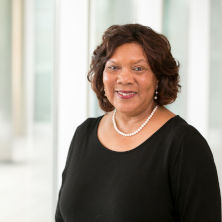
She shared perspective based on her background in vocal performance and practical theology. "The gospel music that found its way into the African-American churches during the mid-20th century had its roots in the secular music forms of blues, jazz, and rhythm and blues," said Thurmond, "all of which was referred to as ‘devil music' in religious African-American homes." She asserted that in worship "the needs of the heart and spirit must override the goals of liturgical and theological correctness."
"Simply because the music is not explicitly Christian or religious does not mean that it is false or evil," she added. "Some music is simply a description of a particular struggle or a particular joy. Being a part of the human community includes honoring that which is positive about the human community, as much as decrying what is evil."
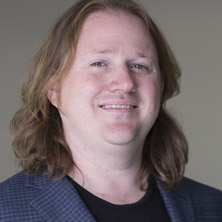
Tramm focused on the point that everything changes with time and perspective. He used as an example an ancient melody that originally "had nothing to do with religion at all. This was a love song made for courtly entertainment, which later developed into this deeply religious and personal song. Its role has changed, showing that perspective and time can change a piece of music," said Tramm, indicating that this conversation about music has been going for hundreds of years and still continues today.

"I cannot talk about my life my music my upbringing without the gospel and how it influenced me," she said. "I would say potentially the most spiritual thing i do is to make music. it's very humbling and it does cause me to rely so much on the spirit to really keep doing it."
After becoming famous on American Idol, White said she had a lot of pressure to serve as an example because or her religious upbringing. "To be put under the microscope was very stressful as an artist," she said. "I was trying to relate to my human experiences — how do I talk about them in an honest way that also honors God and who I am?"
The event concluded with a spirited question and answer period with topics such as what role education plays in preparing students to see the sacred in the secular (or vice versa) and how do performers have to prepare themselves to really take in music more fully.
At the conclusion of the event, Dean Yates said, "This has been a superb, outstanding exchange. I am extremely grateful to you all for sharing your wonderful expertise and making these two hours incredibly powerful, educational and meaningful."
Watch the full event video above to listen to "Spiritual Dimensions of Music: Meaning, Interpretation, and Culture."
About the Institute for Communication and Religion
Launched in Fall 2017, the Institute for Communication and Religion within the College
of Communication and the Arts provides a nexus for ongoing scholarly exploration of
communication topics critically important to religion and society. Guided by the spirit
of ecumenical and interreligious cooperation, the Institute seeks to engage in public
dialogue and debate, promote academic inquiry and support the religious dimension
of creativity — all while upholding the values of servant leadership, curricular innovation
and intellectual excellence.
In Fall 2021 the ICR plans to host a faith dialogue event connecting people from the Catholic and Latter-Day Saint traditions. Communication and English major Ellen Paul is conducting Honors Thesis research on historical trends in Inter-Church dialogue that will frame and inform event production. Sign up here to be added to our mailing list and receive an invitation to this ground-breaking event.
About the Center for Catholic Studies
Founded at Seton Hall University in 1997, the Center for Catholic Studies (CCS) is
dedicated to fostering an ongoing dialogue between the Catholic intellectual tradition
and all areas of study and contemporary culture. In the spirit of the Catholic Church's
legacy of bringing forth things "new and old," the Center's scholarly research, publications,
and programming serve to generate new initiatives and facilitate conversation and
collaboration among faculty, administrators, students, and the general public. The
primary function of CCS is to foster the Catholic mission of Seton Hall in creative
ways.
Categories: Arts and Culture, Education, Faith and Service


